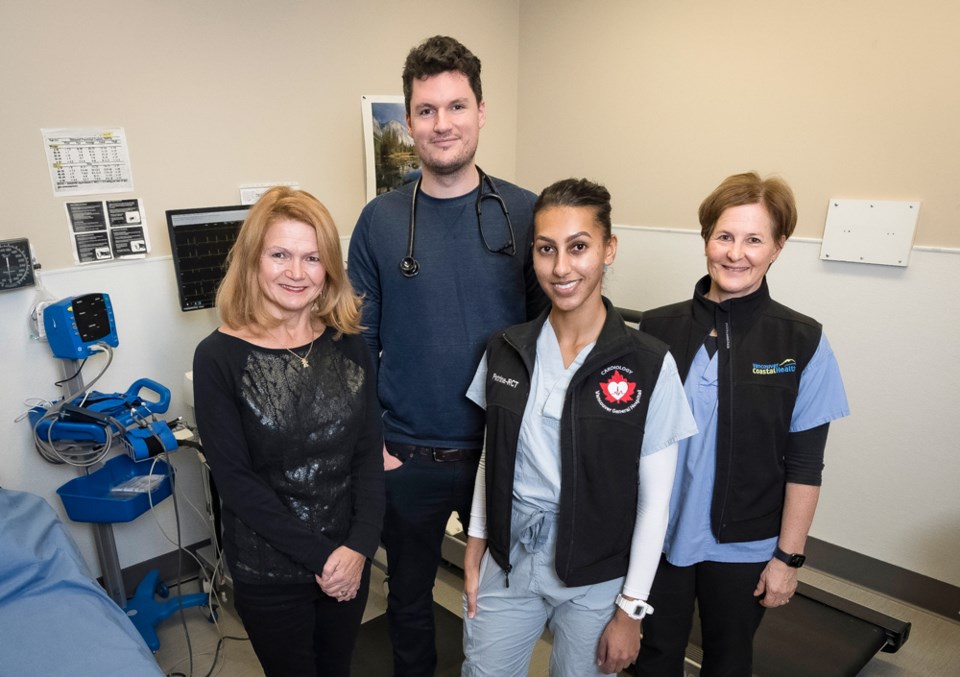Dr. Angus Cherry is a man of many different hats.
A general internal medicine physician at Richmond Hospital, on any given day Cherry has to utilize the skills of an investigative journalist, an expert problem solver or a world-class chess player.
Patience, attention to detail and quick, critical thinking are the names of the game in Cherry’s specialty of care.
It’s those types of traits and skillsets that are unique to general internal medicine, a crucial, yet perhaps somewhat unknown field in a hospital setting.
“I like that I get to treat patients with different medical issues,” Dr. Cherry says. “Being in Richmond, a community with B.C.’s fastest growing senior’s population, we have many patients who come in with numerous health issues. Being a general internal medicine specialist, I can then be able to help diagnose and treat patients using a wider lens and direct them to a specialist when necessary.”
General internal medicine specialists are all encompassing and cross-disciplinary. They are masters at solving complex, diagnostic conditions and dig deeper to find the connections and interrelationships between all of the different systems that might have a domino effect in the exacerbation of a patient’s symptoms.
In some instances, somebody might present with heart symptoms and shortness of breath - but when examining further, the issue might be connected to other conditions.
Working in both hospital and out-patient settings, general internal medicine medical teams are invaluable to the care offered in Richmond Hospital’s emergency and cardiology departments. They work alongside cardiologists, respirologists and emergency department physicians, but also offer the benefit of being a patient’s single point of contact in the care continuum. Their expertise allows them to investigate, diagnose and stabilize patients with multiple and complex medical conditions, which eliminates a patient’s need for a dedicated specialist for each chronic condition.
“I initially wanted to pursue family medicine, but I like that general internal medicine has such a wide scope,” Cherry says. “We deal with comprehensive medical issues that cross several disciplines and we’re able solve complex, diagnostic puzzles.”
Though not necessarily a new discipline, the general internal medicine group has been in place at Richmond Hospital for three years and is now a team consisting of nine physicians.
Oftentimes, the work of general internal medicine specialists will focus on critical systems within the body related to the heart, the lungs and the nervous system – a network of crucial connectivity that is referred to as the “Trio of Life.”
The tools that are vitally necessary to carry out that work are in constant use and as such, in need of frequent replacement and re-stocking.
The diagnostic equipment that is needed encompasses all of the key tenets of care central to the Trio of Life: pulmonary function systems determine lung health; EEG machines monitor brain function; EMG machines track muscle and motor neuron activity and ECG systems assess the heart and cardiovascular system.
The cardiology department, in particular, is in need of equipment that is paramount in diagnosing and treating heart conditions: Holter monitors, cardiac stress tests and treadmill systems.
Donations to Richmond Hospital Foundation to help fund these critical components of care are tax deductible. And like the hospital’s expanding reach across the community at large, donors come from not just Richmond, but also South Vancouver, Delta and Langley, among other cities in Metro Vancouver.
“There are so many people who have experienced these conditions or who have had a loved one who has been through that condition,” says Gloria Wong, who serves as senior manager, philanthropy, with Richmond Hospital Foundation. “We are so grateful for the many donors who step forward, raising their hand in saying ‘yes’ to helping advance health care in Richmond.”
For more information, visit www.richmondhospitalfoundation.com/why-give/trio-of-life-campaign/.



